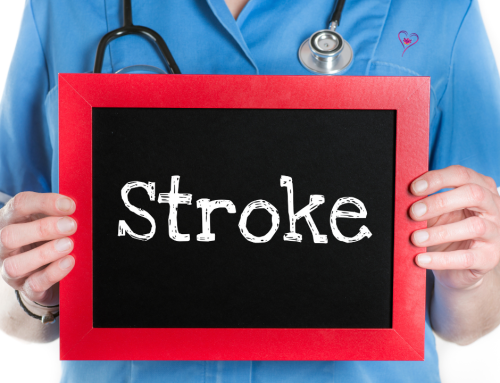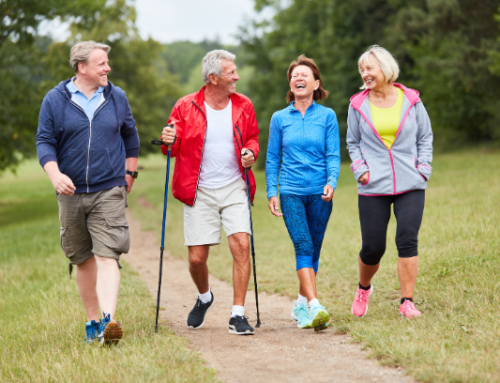Hurricane season in Florida starts TODAY! It runs from June 1 through November 30. During this time, Floridians need to be on high alert, checking the weather reports daily for signs of tropical disturbances in the Atlantic Ocean and Gulf of Mexico.
Because hurricanes can strike Florida with very little warning, it is important for older adults with chronic illness to plan ahead. According to the CDC, chronic illness can easily worsen due to lack of food and water, extreme heat or cold, stress and exposure following a natural disaster.
If you or your loved one are more vulnerable to the risks associated with hurricanes, there are steps you can take to stay safe.
#1 – Make a plan. Will you have to evacuate? Start with an internet search of your city name and the phrase “hurricane evacuation zones” and find out if you live in an evacuation zone. FloridaDisaster.org has on online tool that allows you to search by your address.
#2 – Build an emergency kit. Whether you evacuate or ride out the storm at home, you’ll need at least three days’ worth of food and supplies. AND YOUR MEDICATION.
It’s best to start preparing as soon as possible as stores will be crowded and supplies limited as the storm gets closer. Your hurricane emergency kit should contain:
- COVID-19 vaccine records
- Water — one gallon per person per day
- Non-perishable food
- Flashlights, extra batteries and bulbs
- Battery-operated or hand-crank radio, extra batteries if needed
- First aid kit
- At least one week of all medications, medical equipment and supplies
- Personal hygiene items like toilet paper, wet wipes, hand sanitizer, etc.
- Pocketknife
- Manual can opener
- Copies of important documents like deeds, birth certificates, insurance policies, etc.
- Several days’ worth of clothes
- Whistle
- Books, cards, puzzles and other non-electronic sources of entertainment
- Extra set of keys
- Sunscreen, sunglasses and hat
- Umbrella
- Pet supplies, including food, fresh water, medications and immunization records
If you or your loved ones have “fur babies,” learn more about hurricane preparedness for pets. If you evacuate, you may need to board your pets since most shelters will only allow service animals.
Make sure your bags, as well as items like canes, wheelchairs and oxygen tanks, are labeled with your contact information.
At home, place original copies of deeds, birth and marriage certificates, Social Security cards, passports, etc., in a waterproof safe or safety deposit box.
Communication During A Storm
#3 – Designated meeting spots. Establish designated meeting spots, including ones outside your neighborhood should you not be allowed to return home. Print everyone’s phone number and establish an out-of-town friend or family member who can serve as a point of contact.
#4 – Document care needs. If you have a loved one who may need assistance during a storm, download and complete a caregiver emergency readiness pack and keep readily available. The documentation can be provided to shelters if and when you loved one is admitted.
#5 – Track local announcements. Educate yourself on how authorities will provide information to residents. If available, take advantage of advance registration systems in your area for those who need extra support during emergencies. Resources include:
- Department of Homeland Security alerts
- NOAA Weather Radio/All-Hazard Alert Radio
- Download the FEMA app
Stay On High Alert When A Storm Is Imminent
#6 – Consider a respite stay. If you’re concerned about your safety or the well-being of a loved one during a hurricane, consider a respite stay at an assisted living community. Senior living communities in Florida have enhanced hurricane safety protocols in place that can protect older adults who may not be safe at home alone. In fact, Florida assisted living facilities are required to have backup power generators and will ensure yours or your loved one’s safety during a hurricane.
#7 – Stay on alert. Things can change dramatically as a hurricane approaches. The U.S. government tracks the progression of storms at https://www.nhc.noaa.gov/.
#8 – Final prep. Keep your phones, computers and any backup energy sources charged while you still have electricity. Turn your refrigerator and freezer to the coldest settings and keep the doors closed. This will help food last longer if you lose power.
#9 – Get cash. ATMs and credit card machines may not work after a storm. Make sure you have cash, including small bills and coins.
#10 – Document. Take photos and/or videos of your home and possessions in case you have to make an insurance claim. Upload these to safe storage on the internet.






